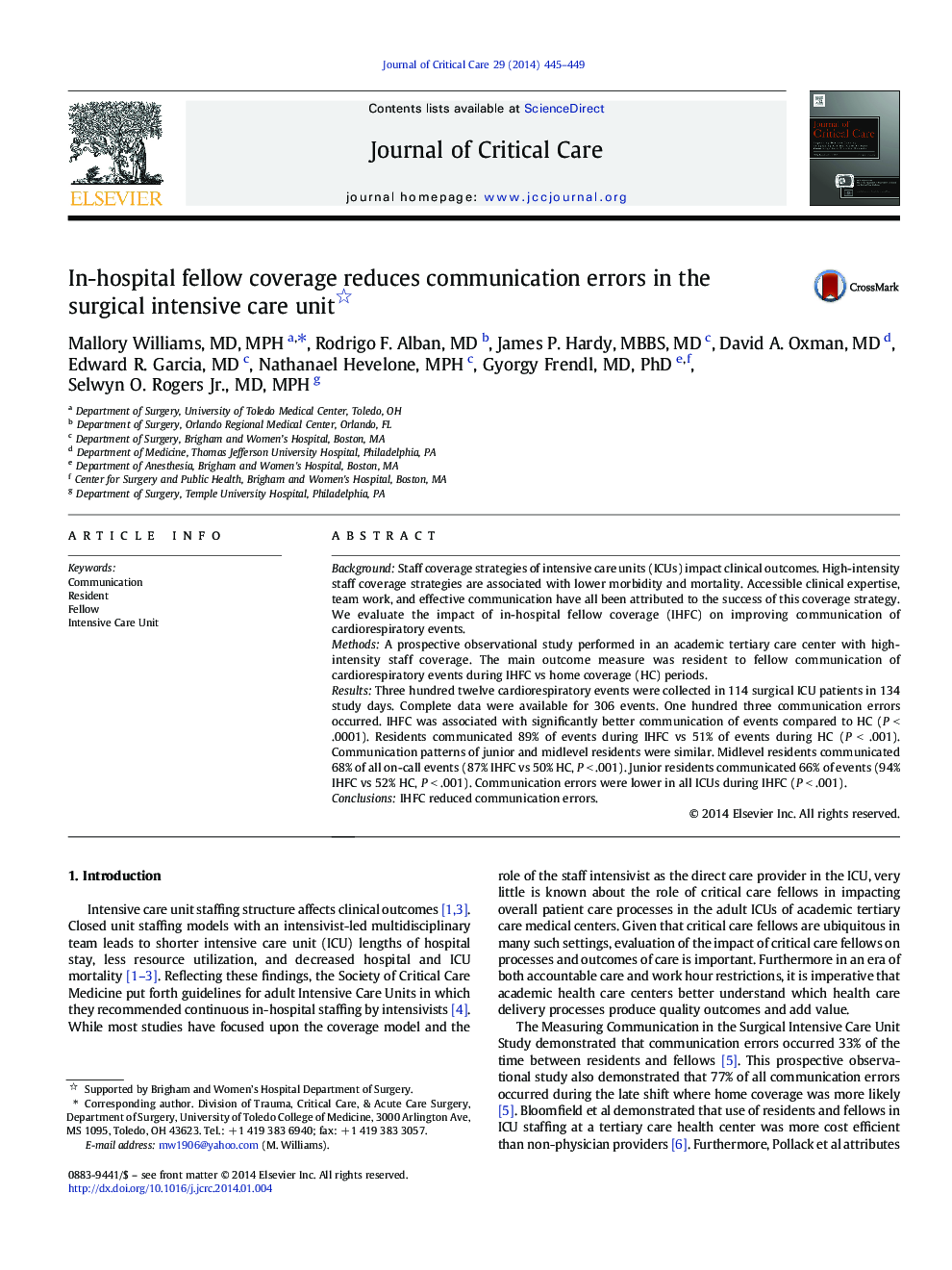| Article ID | Journal | Published Year | Pages | File Type |
|---|---|---|---|---|
| 2764793 | Journal of Critical Care | 2014 | 5 Pages |
BackgroundStaff coverage strategies of intensive care units (ICUs) impact clinical outcomes. High-intensity staff coverage strategies are associated with lower morbidity and mortality. Accessible clinical expertise, team work, and effective communication have all been attributed to the success of this coverage strategy. We evaluate the impact of in-hospital fellow coverage (IHFC) on improving communication of cardiorespiratory events.MethodsA prospective observational study performed in an academic tertiary care center with high-intensity staff coverage. The main outcome measure was resident to fellow communication of cardiorespiratory events during IHFC vs home coverage (HC) periods.ResultsThree hundred twelve cardiorespiratory events were collected in 114 surgical ICU patients in 134 study days. Complete data were available for 306 events. One hundred three communication errors occurred. IHFC was associated with significantly better communication of events compared to HC (P < .0001). Residents communicated 89% of events during IHFC vs 51% of events during HC (P < .001). Communication patterns of junior and midlevel residents were similar. Midlevel residents communicated 68% of all on-call events (87% IHFC vs 50% HC, P < .001). Junior residents communicated 66% of events (94% IHFC vs 52% HC, P < .001). Communication errors were lower in all ICUs during IHFC (P < .001).ConclusionsIHFC reduced communication errors.
